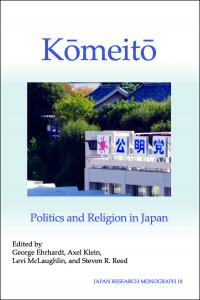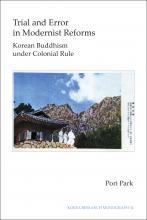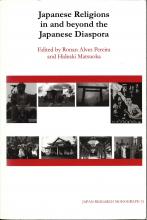Kōmeitō
Kōmeitō
George Ehrhardt, ed., Axel Klein, ed., Levi McLaughlin, ed., Steven R. Reed, ed.
This volume sheds light on a long-ignored part of the Japanese political system, the Kōmeitō party, making the party more accessible to comparative political science. The contributors discuss Kōmeitō's history, its inner workings, and its way to power. The chapters also offer important insights into connections between the religious mother organization (Sōka Gakkai) and the political party.
As a nonprofit academic press, we need your support to publish our books. Your gift can help us make more of our titles available as e-books. DONATE NOW
Title information
Using extensive fieldwork, contributors to this volume present and describe Kōmeitō's history, its inner workings, and its way to power.
Contributors:
Yuki Abe was Senior Research Fellow at the German Institute of Japanese Studies in Tokyo before becoming Associate Professor in the Faculty of Law, Kumamoto University, Japan. His research focuses on religion and politics, international relations, and comparative politics between Japan and European states.
Matthew Carlson is Associate Professor of Political Science at the University of Vermont. He specializes in East Asian politics, public opinion, electoral systems, and human rights. He is currently writing a book with Steven R. Reed on political corruption in Japan.
George Ehrhardt is Associate Professor of Government at Appalachian State University. His primary interests lie in elections and voting behavior, especially at the intersection of faith and electoral action.
Masahisa Endo is a research associate in the School of Political Science and Economics, Waseda University, Japan. His research interests are voting behavior, public opinion, and Japanese politics.
Linda Hasunuma is Assistant Professor of Government at Franklin and Marshall College. She has published work on Koizumi’s reforms, central-local relations, and the LDP-Kōmeitō coalition. Her current projects are on Japan’s gender-equality institutions and policies that affect women and families.
Axel Klein is Professor of Modern East Asian Studies at the University of Duisburg-Essen (Germany). His focus is on election campaigning, religion, and politics as well as demographic change.
Levi McLaughlin is Assistant Professor at the Department of Philosophy and Religious Studies at North Carolina State University. He is currently completing a book manuscript titled Sōka Gakkai: Buddhism and Romantic Heroism in Modern Japan.
Steven R. Reed is Professor at Chuo University in Japan. His major areas of research are elections and electoral systems. He recently coedited Japan Decides: The Japanese General Election of 2012 with Robert Pekkanen and Ethan Scheiner. His current research interests include religious groups in politics.
Daniel M. Smith is an assistant professor in the Department of Government and a faculty associate at the Reischauer Institute of Japanese Studies at Harvard University. His Ph.D. in political science is from the University of California, San Diego.
George Ehrhardt, ed.
George Ehrhardt is associate professor of government at Appalachian State University. His research focuses on Japanese political parties and the role of religion in contemporary Japanese politics. He is coeditor of Kōmeitō: Politics and Religion in Japan (IEAS, 2014).
B.A. in International Relations, Carleton College; M.A. in International Affairs, George Washington University; Ph.D. in Political Science, Indiana University
Axel Klein, ed.
Axel Klein is professor of Modern East Asian Studies at the University of Duisburg-Essen, Germany. His research focuses on election campaigning, religion, and politics as well as demographic change. He is coeditor of Kōmeitō: Politics and Religion in Japan (IEAS, 2014).
B.A. in Japanese Studies, Political Science and Comparative Religion, University of Bonn; Ph.D. thesis on electoral system reform in Japan; Habilitation thesis on political system in Japan
Levi McLaughlin, ed.
Levi McLaughlin is assistant professor of philosophy and religious studies at North Carolina State University. His research focuses on modern and contemporary Japanese religions, particularly Sōka Gakkai. He is co-editor of Kōmeitō: Politics and Religion in Japan (IEAS, 2014).
B.A., East Asian Studies, University of Toronto; M.A., East Asian Studies, University of Toronto; Ph.D., Religion, Princeton University
Steven R. Reed, ed.
Steven R. Reed is professor of policy studies at Chuo University, Tokyo. His major areas of research are elections and electoral systems, as well as religious groups in politics. He is coeditor of Japan Decides: The Japanese General Election of 2012 (Palgrave Macmillan, 2013) and Kōmeitō: Politics and Religion in Japan (IEAS, 2014).
B.A., Political Science, Wabash College; Ph.D., Political Science, University of Michigan
Kōmeitō: Politics and Religion in Japan (JRM 18)
Part I. Introduction
1. Kōmeitō: The Most Understudied Party of Japanese Politics — 3
George Ehrhardt, Axel Klein, Levi McLaughlin & Steven R. Reed
Part II. The Context
2. Religious Groups in Japanese Electoral Politics — 25
Axel Klein & Steven R. Reed
Part III. The History
3. Electioneering as Religious Practice: A History of Sōka Gakkai's Political Activities to 1970 — 51
Levi McLaughlin
- 4. Kōmeitō's Uncertain Decades between Religion and Politics — 83
Yuki Abe & Masahisa Endo - Part IV. The Structure
- 5. How Kōmeitō Politicians Get Elected — 113
George Ehrhardt - 6. Party Ideals and Practical Constraints in Kōmeitō Candidate Nominations — 139
- Daniel Markham Smith
- 7. Sōka Gakkai, Kōmeitō, and Money in Japanese Politics — 163
Matthew Carlson - 8. Housewife Voters and Kōmeitō Policies — 187
George Ehrhardt - Part V. The Way to Power
- 9. Anti-Kōmeitō Counter-Mobilizations — 215
Axel Klein & Steven R. Reed - 10. Kōmeitō in Coalition — 240
Linda Hasunuma & Axel Klein - Part VI. Conclusion
11. Kōmeitō: Religion and Politics in Japan — 269
George Ehrhardt, Axel Klein, Levi McLaughlin, Steven R. Reed
List of contributors — 277
Index — 279
|
BLURBS |
|
"This, the first book-length study of Japan's third-biggest political party, combines comprehensive scope, solid scholarship, insightful analysis, and clear and straightforward presentation. It examines the growth, successes and failures, goals and strategies-in campaigns, in parliament, and as a coalition partner in government-and potential and limitations of Japan's most powerful and lasting (and inevitably controversial) religion-based party. It is essential to any thorough understanding of Japanese politics and the role of religion in contemporary Japanese society." ~James W. White, University of North Carolina |
|
"The relationship between religion and politics has been paid little attention by scholars of religion who have largely assumed, because of Japan's constitutional separation of religion and the state, that the former plays little role in the public sphere. This book, by examining the history of Kōmeitō and its shifting relationship with its founding religious organization, Sōka Gakkai, shows that this is not the case. It indicates how Japan's largest religious organization remains a political force even as the political party it established has become increasingly independent of Gakkai control. In so doing it opens up new vistas in our understandings of religion and politics in contemporary Japan and will be essential reading for anyone interested in contemporary Japanese religious issues." ~Ian Reader, Lancaster University |
|
"Kōmeitō received some attention in the 1960s when it first burst onto the scene, but it has been largely neglected since then in English-language scholarship on Japanese politics-even after it became an enduring member of the governing coalition in 1999. Ehrhardt and the rest of the team deserve kudos for spending time in the field immersed in Kōmeitō and Sōka Gakkai activities and for sharing these insights in this remarkable volume." ~Len Schoppa, University of Virginia |
|
"Anyone interested in contemporary Japanese politics needs to read this book. Certainly, no student of Japanese party politics can afford not to read it. This volume illuminates Kōmeitō' s history, organization, electoral mobilization, and behavior in and out of power. More importantly, this book reorients our understanding of the intersection of religion and politics in Japan, a topic that has danced along the periphery of academic studies even as it has grabbed headlines in Japan and beyond. My only question is why scholars had to wait fifty years for such an incisive study of Kōmeitō." ~Robert Pekkanen, University of Washington |
|
JOURNAL REVIEWS |
|
“This volume is a long-overdue, analytical study that avoids sensationalism. It provides a comprehensive overview of Kōmeitō’s history, electoral strategy, core-support base (particularly housewives), financial support and the gradual normalization of its status in Japanese political life.” ~John Nilsson-Wright, University of Cambridge, in Global Asia, vol. 10, no. 4 (Winter 2015): 135. |
|
"It is inexplicable that despite its growing political significance, Kōmeitō has hardly been found worthy of academic scrutiny, neither in Japan nor in other countries. It is therefore appreciated that a team of US-German editors has finally set out to fill this gap…. In addition to its rightful claim to be a standard academic monograph, the book is also in the best Anglo-Saxon tradition of a textbook that can be recommended to anyone wishing to understand Japanese politics." ~Pit Heltmann, in OAG Notizen (October 2015), pp. 48–51. [translated from the original German] |
|
"Given the various kinds of taboos and the difficulties of gathering information, both of which have left the subject of Kōmeitō under-researched, this book clearly presents valuable empirical evidence based on diverse methods such as interviews and different kinds of fieldwork." ~Tatebayashi Masahiko, in Senkyo Kenkyu, vol. 31, no. 2 (2015), pp. 163–164. [translated from the original Japanese] |
|
"In addition to providing a detailed investigation of the party’s founding and historical evolution, as well as its electioneering operations, funding, and political coalitions, the writers were also motivated to counteract the predominance of slanderous representations of Kōmeitō from Japanese news media and contentious former associates of the party who are primarily concerned with settling scores. By presenting a thorough up-to-date study based in data-driven evidence and operational observations, the collaborators in this volume have provided a much-needed objective source for serious researchers."~Victor J. Forte, Albright College, in Pacific Affairs 89, no. 4 (December 2016): 903-905. (http://www.pacificaffairs.ubc.ca/book-reviews/book-reviews-2/recent-book-reviews/book-reviews-vol-89-no-4/#komeitoforte) |
|
"These essays...substantially enhance our understanding of Sōka Gakkai and Kōmeitō....The volume is well organized and lucidly written; its conclusions are compelling, and the essays complement each other well. The book should become required reading for scholars of Japanese religions, society, and politics." ~Helen Hardacre, Harvard University, in Monumenta Nipponica 71, no. 1 (2016): 253-258. (https://muse.jhu.edu/article/630317) |




